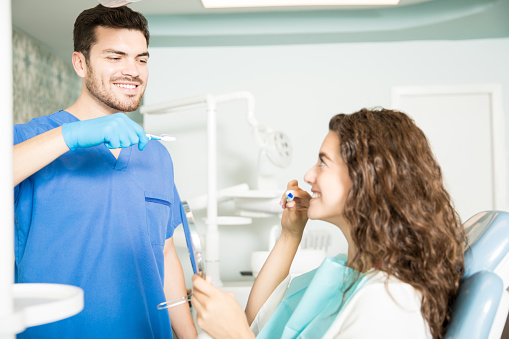It might raise some eyebrows, but there is a connection between your sleeping schedule and oral health. Sleep issues like insomnia and snoring are symptoms of a sleep problem known as sleep apnea. This problem can further damage your oral health as well. Dental problems can also result in sleep apnea.
What Kind Of Oral Problems Does Sleep Apnea Cause?
Adequate and quality sleep is necessary to keep mouth ulcers, bad breath, and periodontal diseases at bay. If you don’t get quality sleep, you may suffer from problems like mouth breathing, bruxism, and TMD. It might not seem possible, but research has shown that the Temporomandibular Joint (TMJ) that connects your jaw to your skull is affected due to a lack of proper sleep patterns. You may suffer from TMD if you have a locked jaw, swollen jaw area, or immense jaw pain.
Bruxism refers to teeth grinding or jaw clenching habits that many people have. It generally occurs when a person is sleeping. Bruxism results in headaches and jaw pain. Not to mention that you might also suffer from neck pain due to the immense jaw pain. As a result, you won’t feel refreshed after sleeping. People suffering from sleep apnea tend to breathe using their mouths. This leads to dry mouth and tooth decay too. Mouth breathing can also cause mouth sores and gum inflammation. This is because it is easier for bacteria to enter your mouth.
How To Detect Sleep Apnea?
Sleep Apnea has easily detectable symptoms like pain or tightness in your jaws, sensitive spots on the inside of your cheeks, headaches, and teeth grinding. Sometimes people can’t detect mild cases of sleep apnea and wonder what’s going wrong with them. This is why you should book an appointment with us. We will evaluate your symptoms and recommend the best action to protect your dental health.

